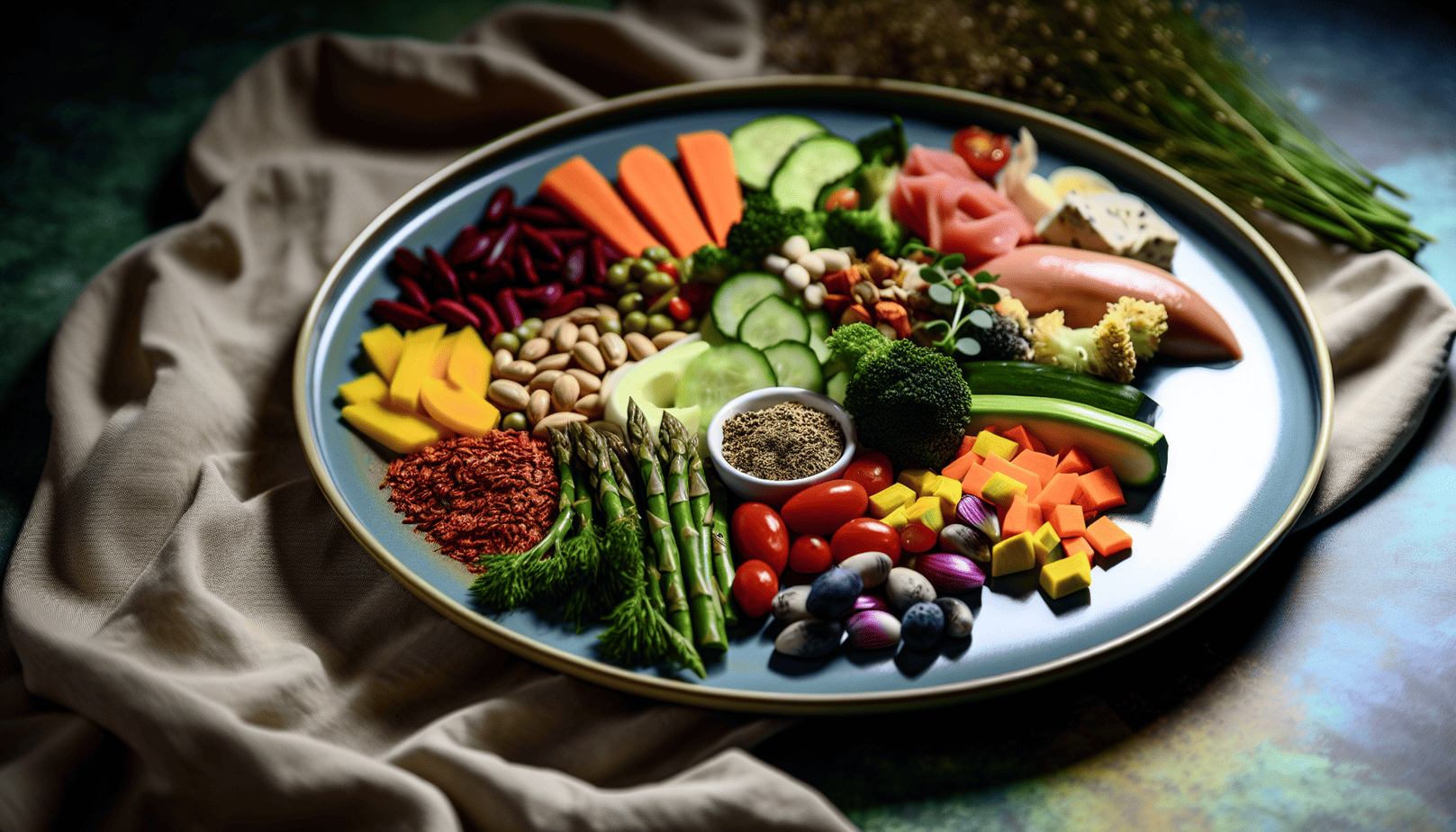Ever tried to fast but found it too rigid? Ever wished for a more flexible approach to fasting that could still offer the benefits of traditional fasting? Enter dirty fasting, an innovative take on traditional fasting that allows for a bit more leniency, making it potentially easier for beginners. Curious already? Let’s delve in and uncover the secrets of dirty fasting.
Dirty fasting, as intriguing as it sounds, is not about indulging in unhealthy food habits. It’s about a modified fasting technique that offers flexibility while still aiming to reap the benefits fasting brings.
So, if you’ve been contemplating fasting but find the strict rules daunting, dirty fasting could be your golden ticket.
Key Takeaways
-
Dirty Fasting is a form of intermittent fasting that allows for the consumption of up to 100 calories during the fasting period.
-
It offers potential health benefits but requires mindful control over food types and quantities to be effective.
-
Professional medical advice should be sought before attempting dirty fasting, and common mistakes such as misjudging caloric intake or neglecting hydration should be avoided.
Understanding Dirty Fasting: The Basics

Dirty fasting is a spin-off of the traditional fasting method but with a twist. Just as the name suggests, it’s a tad ‘dirtier’, meaning it’s less stringent when it comes to calorie intake during the fasting window.
Picture this, you’re in the middle of your fasting period, and your stomach starts growling. With traditional fasting, you’d have to tough it out. But with dirty fasting, you can have a snack, as long as it stays under a certain calorie limit. Sounds tempting, doesn’t it?
While it may seem counterintuitive to consume calories during a fast, the small amount allowed in dirty fasting, usually around 50 to 100 calories, is unlikely to kick you out of the fasting state.
It can still help you lose weight, just like clean fasting with zero calories would, but potentially at a slower pace. However, the flexibility it offers might be just what some folks need to stick to fasting in the long run.
What Makes Dirty Fasting Different?
So, what sets dirty fasting apart from traditional fasting methods? It’s all about the calories. Traditional fasting methods, like alternate day fasting or the strict intermittent fasting protocol, entail complete calorie restriction during the fasting window. This means no food or drinks, except water, herbal teas, or black coffee. But dirty fasting bends these rules a bit.
In dirty fasting, you’re allowed to consume around 50 to 100 calories during your fasting period. This can include:
-
low-calorie foods and beverages that don’t significantly impact your blood sugar and insulin levels, such as non-starchy veggies
-
black coffee
-
herbal tea
This flexibility makes dirty fasting less daunting for beginners or those who find strict fasting challenging to adhere to.
Why Choose Dirty Fasting?

You might be wondering, “Why should I opt for dirty fasting?” The answer lies in its flexibility and potential health benefits. Just like traditional fasting, dirty fasting can help with weight loss and improve insulin sensitivity. But the cherry on top? You get to have a bit of food during your dirty fast.
Dirty fasting can feel less restrictive, making it easier to stick to in the long term. It provides a stepping stone for those new to fasting or those who struggle with the strict rules of traditional fasting.
Plus, the small amount of food allowed during the fasting window can help curb hunger pangs, making it easier to break a fast more bearable.
How to Practice Dirty Fasting Effectively
Having explored the concept of dirty fasting and its potential benefits, we can now proceed to discuss the best practices for implementing it effectively. It’s not as simple as munching on whatever you fancy during your fasting window.
There are guidelines to follow, specific food and beverage choices to consider, and a balance to maintain during your eating window.
Although dirty fasting offers a certain degree of flexibility, monitoring your calorie intake remains crucial. You want to consume a few calories, just enough to curb your hunger but not so much that it hinders the benefits of fasting. Also, the types of food and drinks you choose play a significant role. Simply put, not all calories are created equal, especially when it comes to dirty fasting.
Calorie Guidelines

Dirty fasting permits the consumption of 50-100 calories during the fasting period. This might seem like a small number, but it can be quite helpful in tiding you over until your eating window.
It’s important to note that these calories should come from nutrient-dense foods, not empty-calorie junk food. So, you might wonder, how many calories can you consume during this fasting period? The answer is between 50 and 100 calories.
Misjudging your caloric intake can be a pitfall in dirty fasting. Consuming more than the recommended calories can disrupt the fasting state and hinder the potential benefits of fasting, such as weight loss and improved insulin resistance. Even with the leniency of dirty fasting, maintaining a watchful eye on calorie intake and consuming fewer calories is still of utmost importance when losing weight.
Food and Beverage Choices

When it comes to food and noncaloric beverage choices during dirty and fasting periods, the focus should be on low-calorie, nutrient-dense options. Here are some excellent choices:
-
Non-starchy vegetables like broccoli and leafy greens
-
Black coffee
-
Herbal tea
-
Water
-
Bone broth
These foods and beverages can help support your goals without adding too many calories. Nonetheless, bear in mind that even though these items are allowed during the fasting window, their consumption should still be moderated.
Overusing certain items like artificial sweeteners can have negative impacts on your gut health and potentially increase your appetite. Thus, even though they can make your fasting period more enjoyable, they should be used sparingly.
Maintaining Balance in Your Eating Window
Maintaining balance in your eating window during dirty fasting is just as important as what you consume during your fasting window. This means eating well-portioned, nutritious meals and avoiding the temptation to overindulge, especially in unhealthy foods.
It’s easy to fall into the trap of thinking you can eat whatever you want during your eating window, especially after a period of fasting. But remember, the goal of dirty fasting is to create a calorie deficit to promote weight loss and improve insulin sensitivity.
Thus, even though dirty fasting provides some leniency, making healthy, balanced food choices during your eating window remains paramount.
Health Benefits and Potential Drawbacks of Dirty Fasting
Like any diet or health regimen, dirty fasting comes with its own set of potential benefits and drawbacks. On the positive side, it can offer similar health benefits to traditional fasting, such as weight loss, improved insulin sensitivity, and cognitive improvements.
The small amount of food allowed during the fasting window can make dirty fasting more manageable for some people, potentially increasing adherence and long-term success.
Nevertheless, one must be mindful of potential downsides. The effectiveness of dirty fasting might fall short of traditional fasting methods that involve complete calorie restriction due to an increased overall calorie intake during the fasting period. I
t also requires careful control of the types and quantities of food consumed during the fasting window to ensure the overall calorie limit is not exceeded.
Potential Health Benefits
Dirty fasting offers a plethora of potential health benefits, chief among them being weight loss and improved insulin sensitivity. By consuming fewer calories, dirty fasting can help the body to use stored body fat as fuel, leading to weight loss.
Furthermore, dirty fasting can provide the following benefits:
-
Regulate blood sugar levels
-
Improve insulin sensitivity
-
Be beneficial for individuals with insulin resistance or those looking to manage their blood sugar levels effectively
-
Stimulate autophagy, a cellular process that helps prevent obesity and offers detoxification benefits
Potential Drawbacks and Risks
While dirty fasting does offer potential benefits, it’s important to be aware of the potential drawbacks and risks. For one, it might not be as effective as traditional fasting in terms of weight loss due to the potential for a higher overall calorie intake during the fasting period.
Additionally, an over-reliance on artificial sweeteners can have a detrimental effect on gut health. Plus, the effects of dirty fasting on gut health are still uncertain and require further research. Thus, adopting a balanced perspective towards dirty fasting, taking into account both its potential benefits and drawbacks, is crucial.
Who Should Consider Dirty Fasting?
Dirty fasting isn’t for everyone. While it offers flexibility and potential health benefits, it’s important to understand if it aligns with your health goals, lifestyle, and dietary needs. So, who should consider dirty fasting?
Ideal candidates for dirty fasting include:
-
Individuals new to intermittent fasting
-
Those who find strict fasting methods challenging to adhere to
-
Those aiming to promote fat loss
-
Those aiming to reduce calorie intake
-
Those aiming to improve insulin resistance and high blood pressure
However, bear in mind that dirty fasting may not be a suitable approach for everyone.
Ideal Candidates for Dirty Fasting
Dirty fasting can be a great way for beginners to get started with intermittent fasting, as it provides a more flexible approach. The allowance of 50 to 100 calories outside of the eating window can make it easier to adhere to the fasting schedule.
Dirty fasting can also be beneficial for those looking to improve their metabolic health. It can help regulate blood sugar levels and improve insulin sensitivity, which can be beneficial for preventing type 2 diabetes and other metabolic conditions.
Nonetheless, it is always advisable to seek professional medical advice before embarking on any new diet or fasting regimen.
Who Should Avoid Dirty Fasting?
Despite its potential benefits, dirty fasting is not recommended for everyone. Certain groups, such as pregnant or breastfeeding women, should avoid dirty fasting due to potential negative effects on hormone levels and the need for adequate nutrition.
Similarly, individuals with eating disorders should avoid dirty fasting as it may trigger restrictive behaviors and exacerbate disordered eating patterns. Those on certain medications or with specific health conditions should also consult with a healthcare professional before beginning dirty fasting.
Common Dirty Fasting Mistakes to Avoid
Like any diet or health regimen, there are common mistakes to avoid when practicing dirty fasting. These mistakes can hinder your progress and reduce the effectiveness of the fasting method. Let’s examine these common errors and explore ways to circumvent them.
Mistakes often stem from misjudging caloric intake, overusing artificial sweeteners, and neglecting hydration. All these factors can impact not only your weight loss goals but also your overall health benefits when dirty fasting.
Misjudging Caloric Intake
One of the most common mistakes in dirty fasting is misjudging caloric intake. It’s easy to underestimate the number of calories in certain foods or drinks, which can add up quickly and exceed the recommended 100 calories during the fasting window.
Accurately tracking your daily caloric intake is crucial to ensure you’re not inadvertently breaking your fast. Utilize food tracking apps or keep a food diary to keep an eye on your intake.
Keep in mind, that adherence to calorie guidelines is still necessary to reap the benefits of dirty fasting, despite its leniency compared to strict fasting.
Overusing Artificial Sweeteners
Another common pitfall in dirty fasting is overusing artificial sweeteners. While they can make your fasting period more enjoyable, over-reliance can increase your appetite and potentially disrupt your gut health.
Thus, even though enjoying a diet soda or sweetening your coffee with artificial sweeteners might not disrupt your fast, overindulgence in processed foods could be detrimental in the long term. Remember, moderation is key when it comes to dirty fasting.
Neglecting Hydration
Hydration is often overlooked in many forms of fasting, including clean and dirty fasting. Fasting can lead to dehydration if you’re not mindful, and this can lead to symptoms like fatigue, dizziness, and headaches.
During dirty fasting, it’s crucial to keep yourself hydrated. Water not only prevents dehydration but also helps to keep your hunger levels in check, aiding in the overall effectiveness of the fast.
It’s important to keep yourself adequately hydrated throughout the day, not solely during your eating window.
Summary
Dirty fasting offers a flexible and potentially easier-to-adhere-to fasting method for those new to the concept or who find traditional fasting too strict.
By allowing a limited calorie intake during the fasting window, dirty fasting can still help promote weight loss and improve insulin sensitivity, among other health benefits.
However, like any diet or health regimen, dirty fasting is not without its potential drawbacks.
Reduced effectiveness compared to traditional fasting, over-reliance on artificial sweeteners, and other potential risks underline the importance of approaching dirty fasting with a balanced view. As always, it’s best to seek professional advice before embarking on any new diet or fasting regimen.
Frequently Asked Questions
Does dirty fasting have benefits?
Dirty fasting may offer potential benefits such as weight loss, improved mood, and increased energy levels. However, without clinical trials to back up these claims, the effectiveness of dirty fasting is still uncertain.
Does dirty fasting stop autophagy?
Dirty fasting does not stop autophagy it can promote the process by providing just enough calories for the body to function.
Is coffee dirty fasting?
Coffee is generally considered part of a clean fasting regimen as long as it is consumed without any milk or sweetener. However, dirty fasting does include the consumption of up to 100 calories, which could include coffee with added milk and sweetener.
What are the rules for dirty fasting?
The rules for dirty fasting vary but generally involve eating anything with less than 50 calories during your fasting window and avoiding caloric beverages. Some people may also include high-fat foods that do not cause an insulin spike. Ultimately, it is up to the individual to decide what to consume while fasting.
